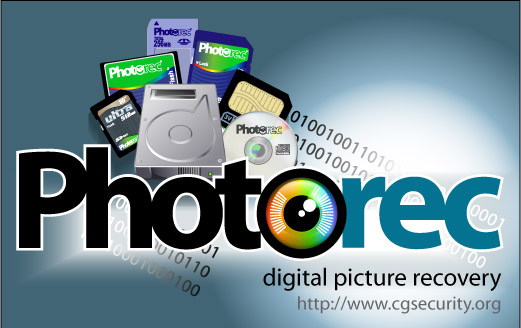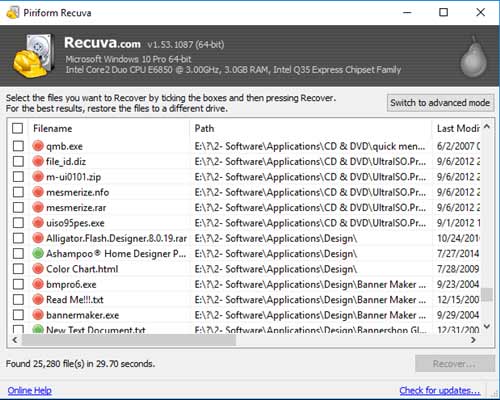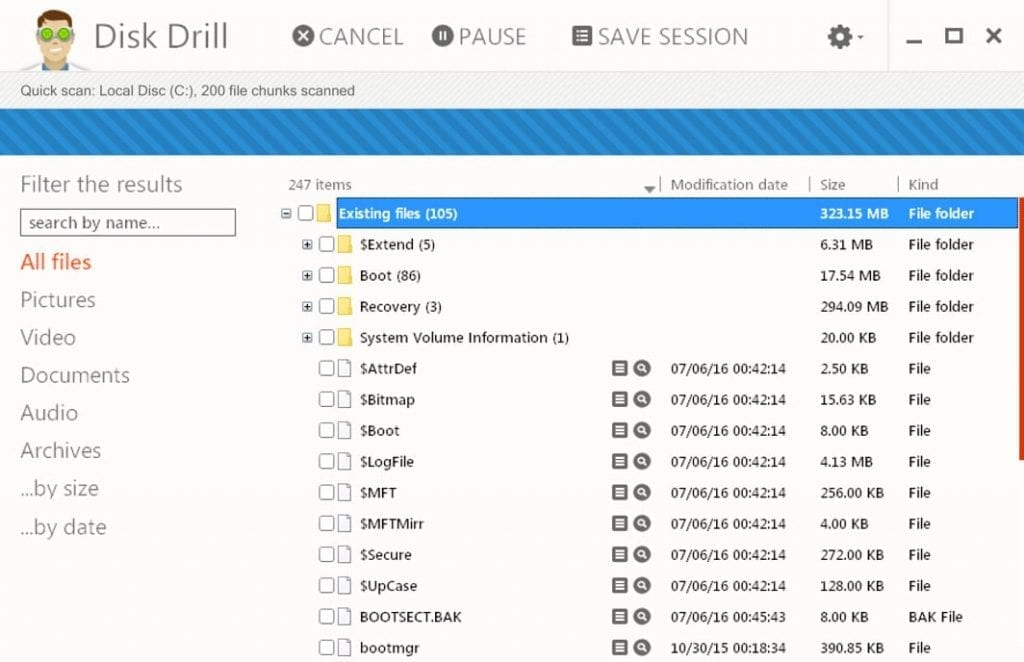Recovering deleted files is pretty easy on a desktop operating system. You can make use of several third-party apps to recover your lost data. When it comes to data recovery, there are multiple options available too. Some data recovery tools require premium accounts, whereas others are just free. In this article, we will talk about open-source data recovery tools. Not only that, but we will also share a list of the best open-source data recovery tools available on the web. But, before exploring the list, let’s know where the deleted files go.
Where do the files go when they are deleted?
First, deleted files can be recovered from a standard hard drive. The operating system does not remove them entirely from the sectors they occupy on the device (even when you empty the recycle bin). Still, something similar happens in that they are marked as not essential, and it is considered that the space they occupy can be overwritten. When the system needs space for new files and overwrites those where the files were deleted, they will be permanently lost. While this does not happen, a data recovery program can scan the disk and find anything that has not yet been overwritten to recover it. With that detail in mind, it would make sense to stop using the device immediately when you want to recover files from a hard drive to avoid overwriting the space by adding new files.
List of 10 Best Data Recovery Tools 2022
That is why installing the recovery tools in a portable device is advisable. If possible, remove the hard drive from your computer and connect it to another where you have installed the software you will use. So, now without wasting time, let’s explore the list we mentioned below.
1. PhotoRec
If you are searching for free, open-source utility software for data recovery with a text-based user interface, give PhotoRec a try. With PhotoRec, you can quickly generate deleted files, including videos, pictures, and documents from hard disks, digital cameras, CD-ROMs, etc. As of now, PhotoRec can recover more than 480 different file formats, and it also supports a variety of file systems. However, the program is complicated due to its text-based non-graphical user interface.
2. Recuva
The guys from Piriform have made a great program to recover deleted files called Recuva. The program allows a quick or deep search on both hard and external drives. And not only that, it also allows for the recovery of all file types like emails in applications such as Outlook or Thunderbird that were accidentally deleted. It also has a portable version, which we recommend running from a different disk to the one you want to recover to avoid overwriting data.
3. Pandora Recovery
Pandora is an excellent data recovery software that allows you to recover deleted files from FAT, NTFS, and NTFS/EFS partitions. It is straightforward to use and has a very user-friendly interface. Pandora Recovery recovers files from hard drives, memory cards, etc. Almost anything that stores files that can also be connected to your PC must be supported. Moreover, in Pandora Recovery, a more advanced “Surface Scan” is available that must recover more files than the standard search, as long as they are of a popular format.
4. Stellar Data Recovery
The Stellar Phoenix brand is one of the most reputable IT software brands, thanks to a wide range of data services designed to rescue users from difficult situations. Stellar Data Recovery can be used to restore files that you have accidentally deleted. It can also recover data from damaged or corrupt hard drives or unmounted partitions. The advantage we love is that it can recover data from external hard drives, USB flash drives, and damaged CDs or DVDs.
5. MiniTool Power Data Recovery
MiniTool Power Data Recovery is one of the well-known recovery tools available in the market. The free edition of MiniTool allows you to recover deleted files, damaged partitions, partitions with lost data, or USB drives from digital cameras, auxiliary memories, pen drives, or optical media (CD or DVD).
6. Glary Undelete
Glary Undelete is an excellent free file recovery program. It is straightforward to use and has one of the best user interfaces I’ve seen. The most significant advantage of Glary Undelete is that it includes the easy view of “folders,” a picture of Windows Explorer-style recoverable files, and a prominent indication of “Status” for each file, suggesting if the file can be recovered or not. A disadvantage of Glary Undelete is that the installation is required before it can be used, and it simply asks you to install a toolbar, which you can decline. Apart from these facts, Glary Undelete is one of the best tools in its segment class.
7. Wise Data Recovery
Wise Data Recovery is a free recovery program that is simple to use. The Data Recovery tool can scan various USB devices, such as memory cards and other removal devices. An instant search function makes searching for deleted files that Wise Data Recovery features straightforward and quick. A Recoverability column shows the probability that a file will recover with good, bad, very bad, or lost, and right-click on the file you want to restore.
8. Disk Drill
Disk Drill is an excellent, accessible data recovery program, not only for its features but also because of its straightforward design, which makes it almost impossible to get confused. The Disk Drill website says it can recover data (up to 500 MB) from “virtually any storage device,” including internal and external hard drives, USB devices, memory cards, and the iPod. Disk Drill can also preview image files before recovering them.
9. Puran File Recovery
Puran File Recovery is straightforward to use and lets you scan any Windows drive you see. Not only that, it even offers you many advanced options if you need them. One thing to keep in mind, in particular, is that the tool identifies more files than any other recovery tool. So, if you have already used Recuva and cannot recover the file you want to restore, give it a try, as it is worth it.
10. EaseUS Data Recovery Wizard
One of the best aspects of EaseUS Data Recovery Wizard is that the user interface is structured similarly to Windows Explorer. While the ideal way to show the files may not be everyone’s taste, it’s a familiar interface that most people feel comfortable with. EaseUS Data Recovery Wizard can recover files from hard drives, optical drives, memory cards, and almost anything else Windows sees as a storage device. It also supports partition recovery as well. With these free data recovery tools, you can quickly recover your lost or deleted data. I hope this article helped you! Please share it with your friends also. If you know of other such tools, let us know in the comment box below.









